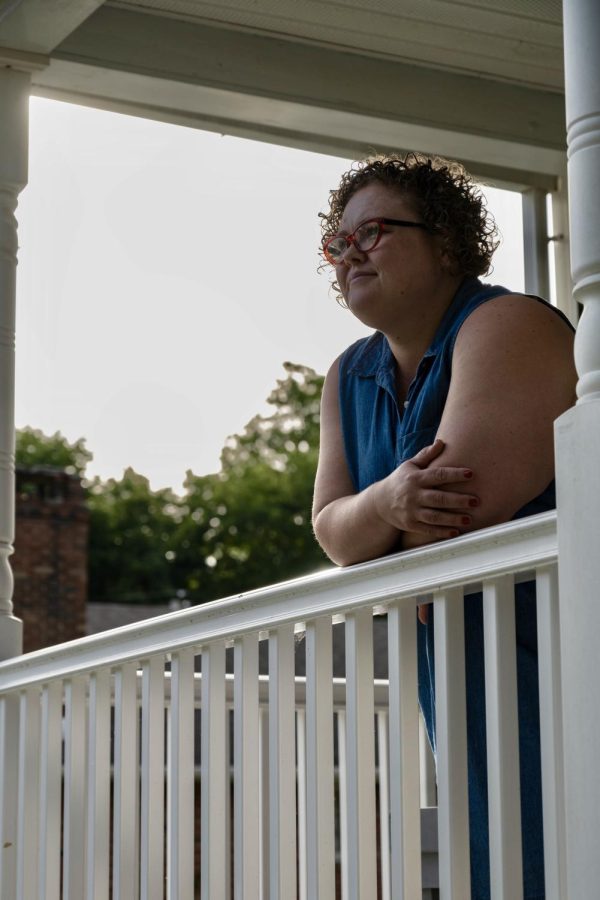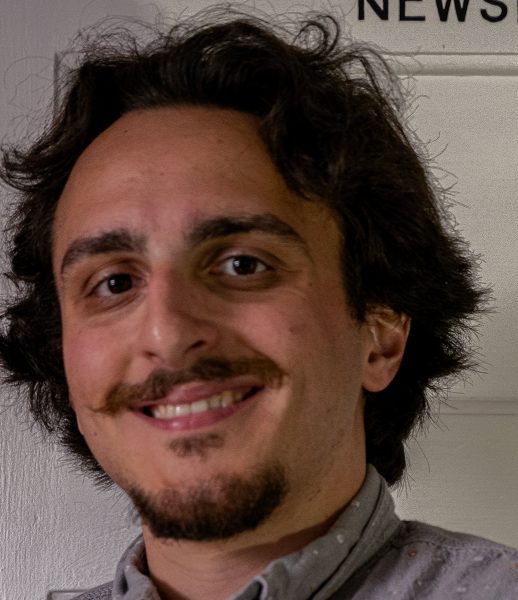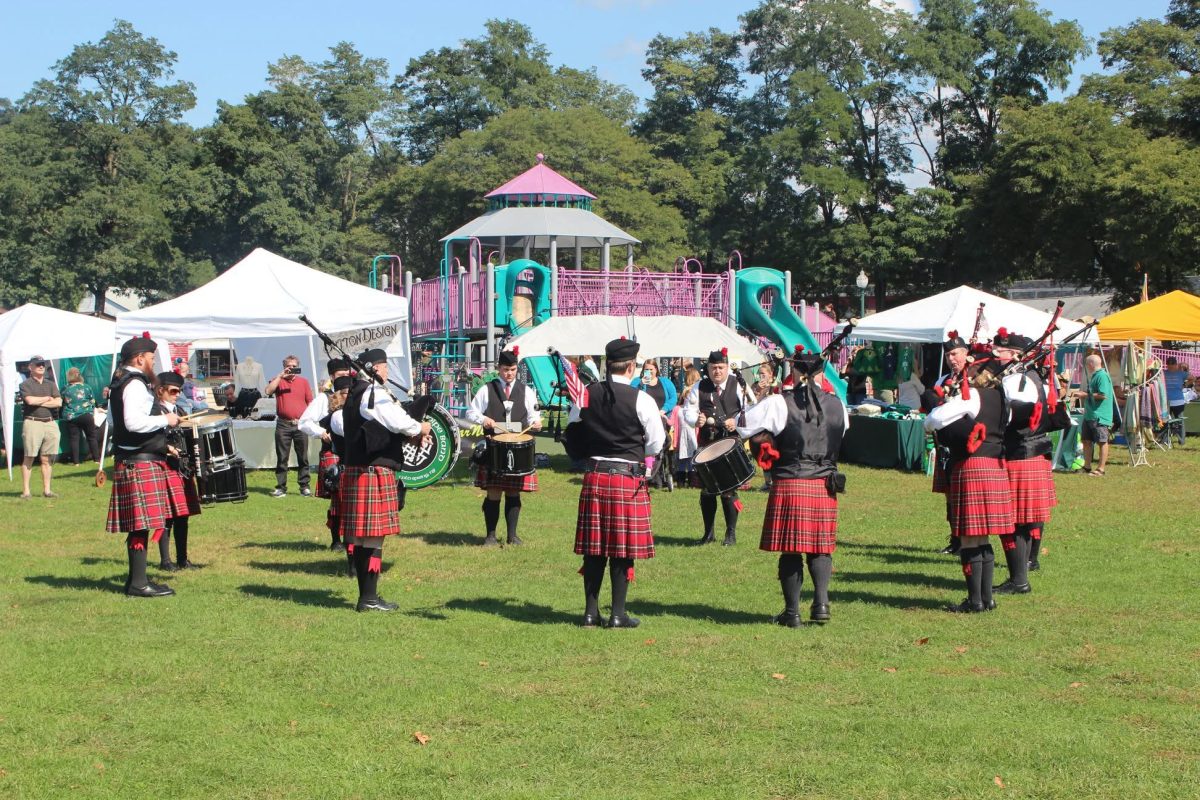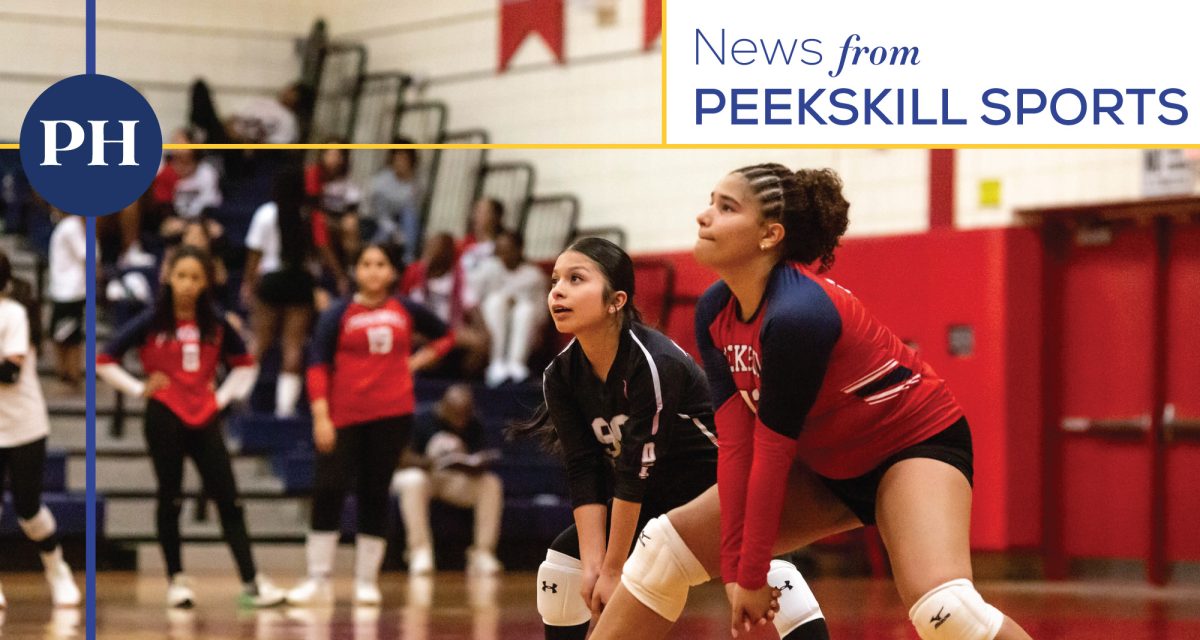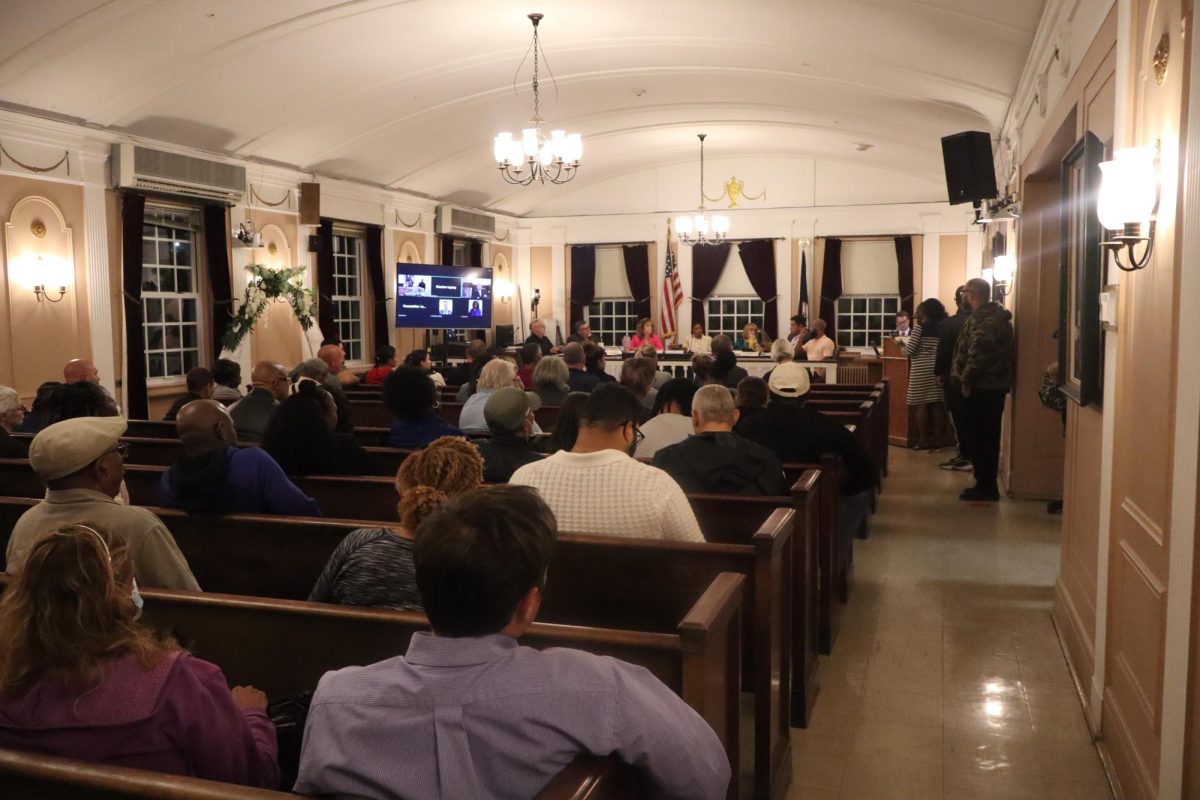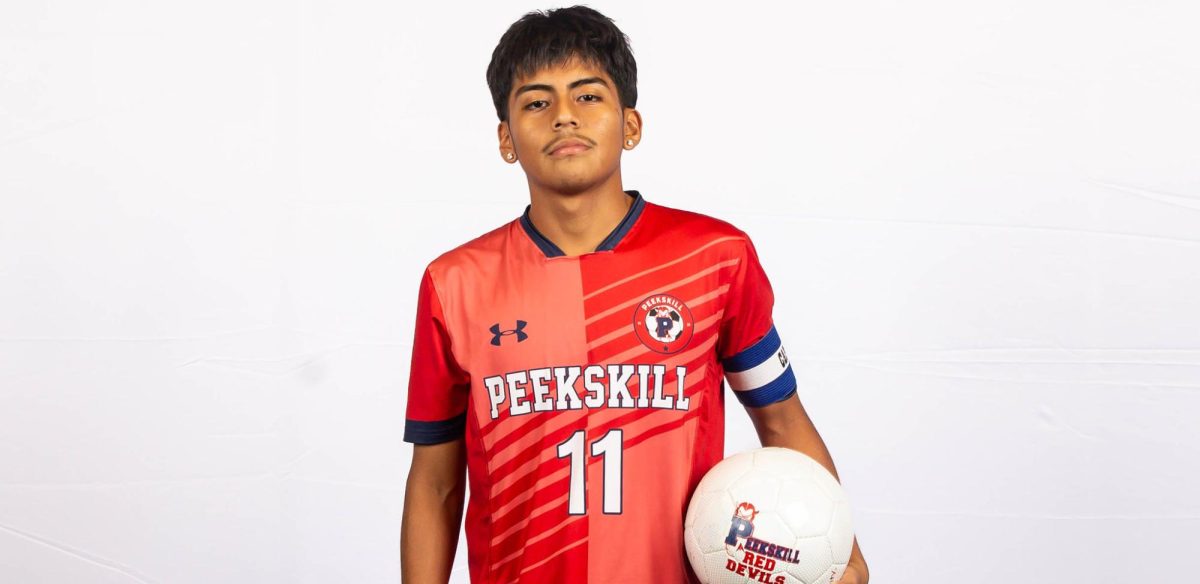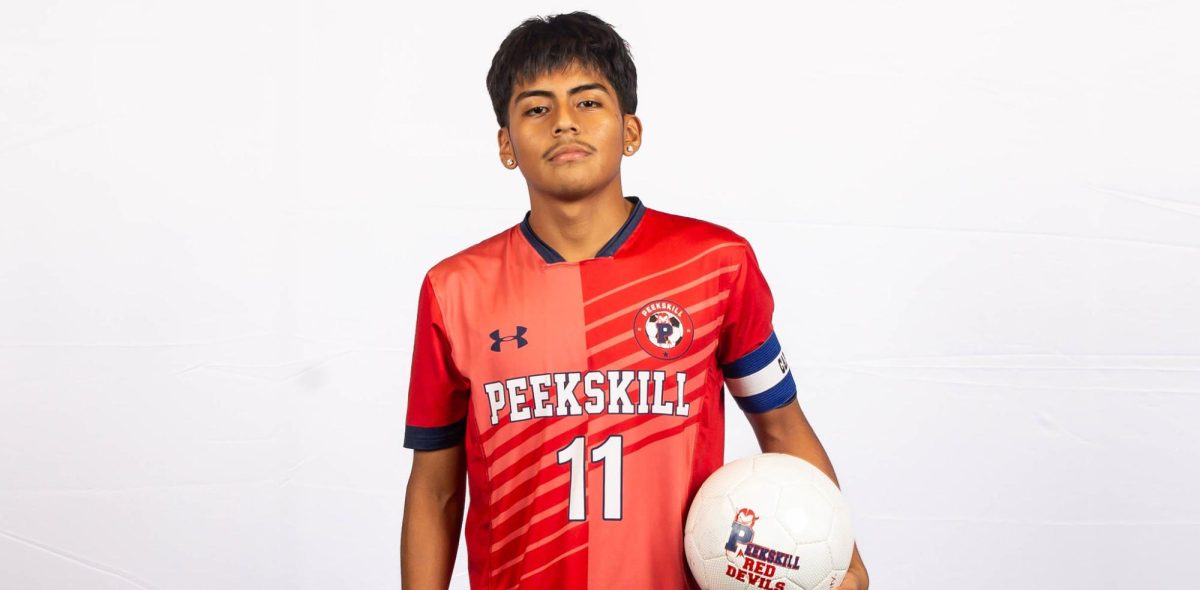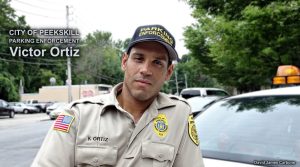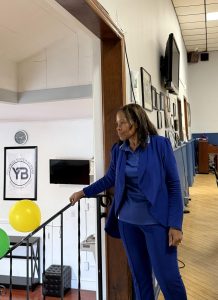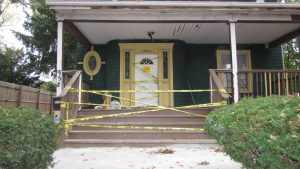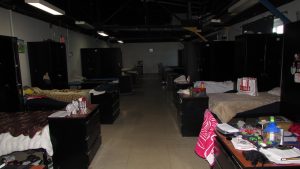Burning Questions: Courtney Williams talks about her ABC news appearance
June 28, 2023
A month ago, Courtney Williams was beamed onto screens nationwide as part of Trashed, an ABC News special report on plastic bag recycling. The documentary, which can be viewed here, follows the route taken by plastic bags put in store recycling bins. One of the plastic bags was dropped off at a Target in Newburgh and ended up at the Westchester incinerator on John Walsh Boulevard.
Williams says ABC found out about her because of her work as the co-founder of The Westchester Alliance for Sustainable Solutions (WASS). For several months before the airing on May 24th, Williams and WASS’ organizer Vanessa Agudelo worked with ABC’s producers behind the scenes to plan the visit.
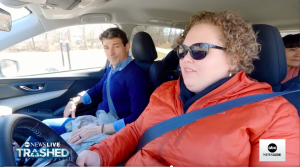
Footage from Williams’ interview introduces the piece’s central thesis. “If a lot of people really made the connection between what they put in the recycle bin, what they put in the garbage, and the fact that they’re going to breathe it we’d have folks paying a lot closer attention,” she says while speaking to ABC’s Matt Gutman.
Once she’s introduced on screen, Williams is direct with how she feels.
“My biggest regret is buying this house and moving to this community because I worry what risk I put my children at.”
Williams feels that in Trashed the focus was shifted away from WASS and on to her. The report presents her segment as one mom’s fight against the looming trash incinerator. In one particular scene, Williams explains to her son that ABC is following a recycled plastic bag to the Wheelabrator plant. He waits a beat, and expertly sums up the problem— “that’s not where it’s supposed to go.”
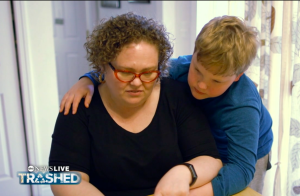
The ABC reporter then leaves Williams’ home and tours the Wheelabrator plant. Here, she thinks the news team was caught flatfooted.
“We didn’t know that they got the okay to go in there,” said Williams, reflecting on the broadcast. “If we had known, we could have kind of prepared them for like, ‘here’s the things they’re going to say. And those things are lies.’”
In Trashed, Wheelabrator claims that emissions from their plants have no negative health impacts. They also present themselves as the best option, with the alternative being a truck to a landfill. Williams is less keen on this characterization. “We need to be really clear that Wheelabrator’s job is to make money. They’re not in the business of saving the planet. They’re not in the business of, you know, keeping people healthy, and they have been polluting our air. They’re the largest industrial air polluter in Westchester County.”
Trashed includes a brief clip, less than 20 seconds, where Williams mentions that Peekskill has higher asthma rates than the rest of the county. She says they recorded more, but most of it didn’t make the cut.
“I think a lot of the, like, the health impact stuff and the real info on how bad trash incineration is, was not caught,” Williams said. “Since they were focusing on the recycling, that was their angle. But for people living here, it’s really the health and environmental impacts that are awful- and that they didn’t cover because that wasn’t their story.”
Williams wants people to understand how the incinerator, plus the gypsum and chemical plants on the outskirts of town, impacts their health. In her opinion, the city is finally taking the initial steps to reduce the need for trash burning. Even though Trashed didn’t fully address these concerns, she still feels it had a positive impact.
“I also think it did a good job of just making people aware that we’re not going to recycle our way out of this problem, you know? People put stuff in the recycling bin, and they think they’re doing their part,” said Williams. “That show (Trashed) should make them realize that it’s not enough to just put it in a recycle bin, that a lot of the stuff is not recyclable, or even if it is and you put it in a bin, it doesn’t get recycled.”


